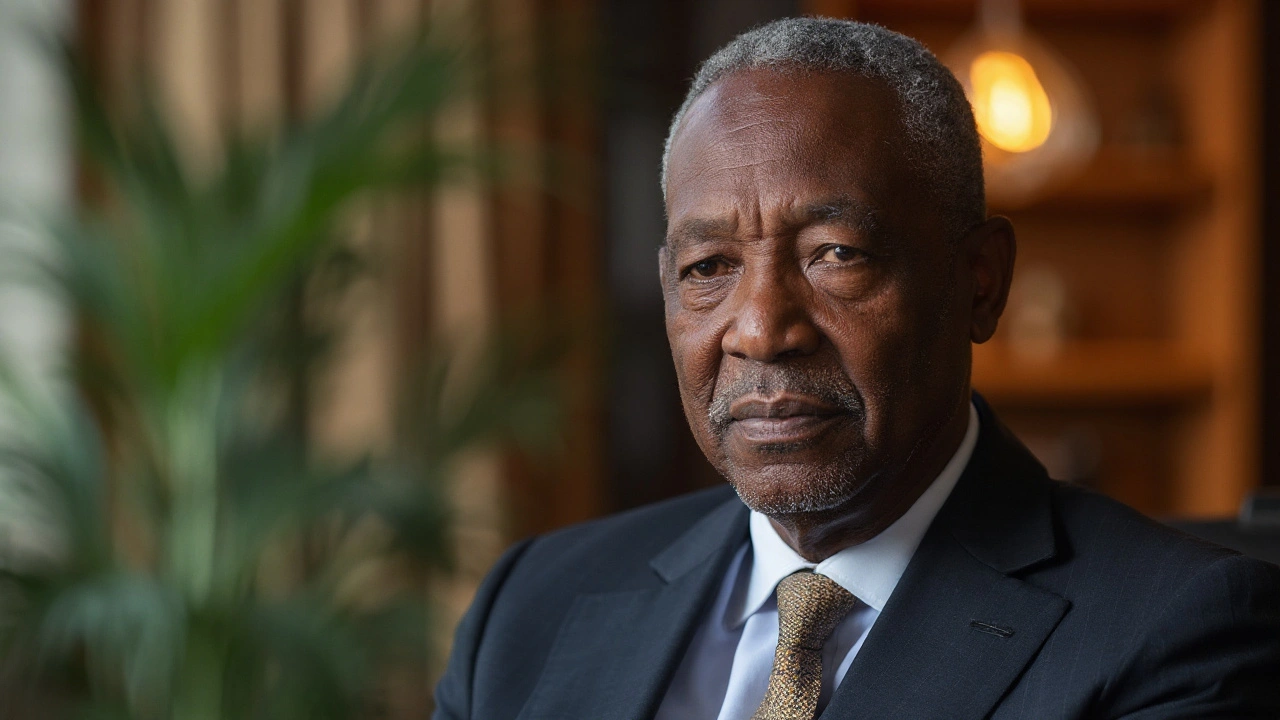David Bird Takes the Helm at Dangote Refinery
When a company wants to make waves in the world's energy sector, it starts by choosing the right leader. That's exactly what Dangote Petroleum Refinery and Petrochemicals did by hiring David Bird as their new CEO. The appointment became official in July 2025, with the news making headlines on August 1.
Bird’s journey to Dangote isn't your average corporate climb. He previously led Oman's ambitious Duqm Refinery, handling one of the largest energy projects in the Middle East. Before that, he spent years at Shell, managing complex operations and navigating the challenges that often come with giant refineries. Now, he's stepping into Dangote’s top job with the mission to ramp up capacity and set the company apart in a fiercely competitive market.
This isn't just another leadership shuffle. For Dangote, it’s a clear signal: Africa's biggest refinery is playing for keeps, aiming not just for regional, but global influence in the oil and petrochemical sector. Bird’s expertise is expected to help streamline operations, iron out inefficiencies, and unlock new opportunities across the supply chain.
Ambitious Goals: Expansion and Global Reach
Under Bird’s guidance, Dangote is gearing up for aggressive expansion. The focus is on increasing output, upgrading technology, and making sure that the refinery can respond quickly to market shifts. The move fits perfectly with Dangote’s strategy to supply more refined products across Africa and tap into international markets, especially as global demand for energy products changes shape.
Bird’s résumé isn’t just impressive—it’s practical for Dangote’s needs. Running Duqm Refinery meant overseeing large-scale projects, dealing with strict regulations, and pushing for efficiency even when oil prices were volatile. These are the same challenges Dangote faces as it tries to become a key supplier, not just for Nigeria but far beyond its borders.
The energy industry is watching closely. If Bird manages to drive the planned expansions and overcome infrastructure hurdles, Dangote could lower reliance on imported fuel within Africa. That’s a big deal for regional economies and could reshape trade routes and pricing in the sector.
With Bird at the helm, Dangote seems set to shake up not just Nigerian oil, but to put itself on the global map. A new chapter—with fresh leadership, bigger ambitions, and a clearer path toward international recognition—is now underway for Africa’s refining giant.







Mohit Singh
Reading about the new CEO feels like the universe decided to toss another corporate drama my way, and honestly, I'm both thrilled and exhausted by the endless parade of executive reshuffles.
Damian Liszkiewicz
Congrats to Dangote on snagging a seasoned leader! 🌟 This could usher in a new era of growth and sustainability for the region. 🚀
Angela Arribas
While the article is generally well‑written, there are several instances where the Oxford comma is omitted and where 'its' should replace 'it's'. Consistency in tense also wavers in the third paragraph.
Sienna Ficken
Oh great, another CEO with a fancy résumé – because what the refinery really needed was someone who can add more buzzwords to the press release.
Zac Death
David Bird stepping into Dangote’s massive operation is a bold move that could reshape the African energy landscape. The refinery, already one of the continent’s largest, has been grappling with capacity constraints and logistical bottlenecks for years. Bird’s experience at Duqm, where he managed a complex supply chain under tight regulatory scrutiny, is directly relevant. His track record shows he can streamline processes, a skill that will be vital for expanding output at Dangote. Moreover, the global oil market’s volatility demands agile leadership, and Bird appears ready to navigate price swings without compromising growth. The new CEO will likely push for modernizing the plant’s distillation units, which could improve yield and reduce waste. Investing in cutting‑edge tech, such as advanced catalysts and digital monitoring, could also lower operational costs. By enhancing refinery integration with petrochemical downstream activities, Dangote might capture higher‑value products. This vertical integration aligns with global trends where refineries become hubs for diversified chemicals. In addition, strengthening local partnerships could help secure raw material supply and distribution networks across West Africa. Bird’s familiarity with international standards could aid in meeting stringent environmental regulations, an increasingly important factor for investors. The anticipated expansion may also create thousands of skilled jobs, stimulating economic development in the region. However, the project will face challenges, including infrastructure gaps in transport and power reliability. Overcoming these hurdles will require coordinated efforts with governments and private sector stakeholders. If successful, Dangote could set a benchmark for other African refineries seeking global competitiveness. The coming months will be crucial to see how strategic plans translate into tangible progress.
Lizzie Fournier
I agree, those commas matter.
JAN SAE
Wow, what a massive shift, truly, a game‑changing appointment, and undoubtedly a strategic masterstroke, for Dangote's future, no doubt!
Steve Dunkerley
From a downstream integration perspective, Bird's tenure at Duqm likely equips him with the requisite process optimization frameworks, such as Six Sigma, which could be instrumental in reducing throughput variance at the refinery.
Jasmine Hinds
Excited to see what’s next 😊
Madison Neal
The strategic emphasis on petrochemical diversification could position Dangote as a key player in the global value chain, especially if they leverage economies of scope.
John Crulz
It’s fascinating how leadership changes can catalyze operational pivots, reminding us that people matter as much as assets.
Anita Drake
Understanding the cultural dimensions of managing such a large workforce will be crucial for sustaining long‑term growth.
Eduardo Lopez
Honestly, this could be the most epic corporate saga of the decade, and I’m all in for the drama that follows.
Nancy Perez de Lezama
While the appointment is noteworthy, it remains essential to assess the alignment of strategic objectives with national energy policies.
Matt Heitz
Finally, an African firm taking control of its own destiny rather than relying on foreign executives-this is the kind of leadership we need.
Susan Mark
Let’s hope this leads to real, positive change for the region and inspires more local talent to aim high.